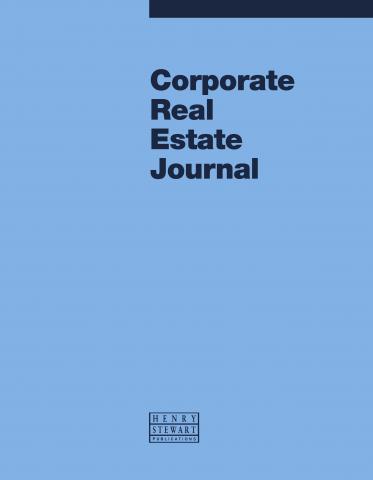“The new thinking which this journal encourages is amazing.”
The role of commercial real estate in shaping our carbon future
Click the button below to download the full text of the article.
Abstract: The urgency of the ongoing climate crisis requires swift action from all industries. This includes commercial real estate as the building industry is responsible for nearly 39 per cent of annual global energy-related carbon emissions. It is critical that the real estate sector focuses on reducing both operational and embodied carbon emissions to effectively decarbonise our built spaces. This paper discusses the role that the commercial real estate sector plays in reversing global warming and the resources, tools and organisations already available for companies and individuals looking to begin to reduce their carbon footprint. It also details the two types of carbon emitted by our buildings and the importance of focusing on embodied carbon for substantial change. Readers will walk away with actionable steps they can take to lower the carbon footprint of commercial real estate.
Keywords: climate change; carbon emissions; building life cycle; net zero; embodied carbon; carbon reduction; wellness
Lisa Conway serves as VP of Sustainability, Americas for Interface — the global flooring manufacturer that is leading industry to love the world. Lisa and her team are responsible for regional activation of the company’s mission: Climate Take Back™. She is passionate about bringing awareness to the interconnectedness of environmental sustainability and human health. To drive understanding of the impact of carbon on human health, Lisa leads her team in providing educational programming around the need for transparency and prioritisation of embodied carbon in specifications within the building industry. She co-founded the Materials Carbon Action Network (materialsCAN) in 2018 to mobilise this effort, which is now a programme for Building Transparency, the non-profit organisation that provides open access data and tools to address embodied carbon’s role in climate change. Lisa is on the executive committee and serves as a member of the Board of Directors for this non-profit. She also serves on the Sustainable Advisory Board for The Smeal College of Business at The Pennsylvania State University and was named to ‘CoreNet’s 36 Under 36’ in 2015. Lisa has presented at Living Future unConference, MindfulMATERIALS Impact Summit, Green Building United’s Sustainability Symposium, GreenBiz 22, Living Product Expo, CoreNet Global Summit, Greenbuild, CarbonPositive Conference & Expo, etc.
Jon Khoo serves as Head of Sustainability, EAAA for Interface. He leads and partners on a range of strategic sustainability and innovation projects at Interface for its EAAA business. Jon is responsible for the commercialisation of sustainability and maintaining Interface’s reputation for sustainability in the built environment and beyond, connecting and collaborating with our customers on climate change, the circular economy and regenerative business and working with leading corporates as Interface’s representative for the Prince of Wales Corporate Leaders Group and the Aldersgate Group. Jon is a spokesperson for Interface on national, European and global levels. A regular speaker and panellist on sustainability and climate on the conference circuit for example with the UN FAO, Edie, Ethical Corporation and Innovation Forum. Plus, host of the Designing with Climate in Mind podcast.



